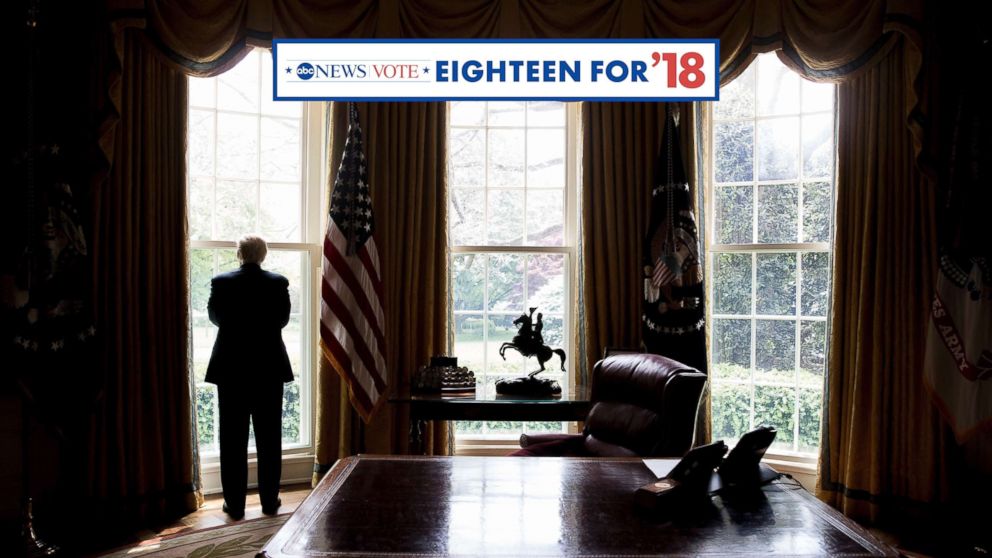ANALYSIS: Midterm clashes set to define Trump era
— -- They will mark the first nationwide referendum on the Trump era. And the 2018 midterm elections promise to carry with them the drama, enthusiasm, frustrations, and wild storylines we’ve come to expect in politics.
The election of President Donald Trump and his first year of governing have altered the political climate. Turbulent events are driving powerful crosscurrents into all levels of races, bringing the potential for a historic wave that could shift Washington’s balance of power.
But all manner of individual political weather systems will define 2018. That will play out across a unique political geography, on an election map that provides limitations and opportunities to both parties. The battles inside the parties might be as fierce as those between rival ideologies.
There are new characters and old issues, famous names and loads of first-time candidates. The implications on policy are vast, as anxious voters across the ideological spectrum are set to render judgment on the president -- and offer hints of what might come next.
ABC News’ “18 for 18” series will identify and cover aggressively the races that will embody the stories of the 2018 midterm elections.
Here are some of the themes that will dominate a midterm year that promises to be like no other:
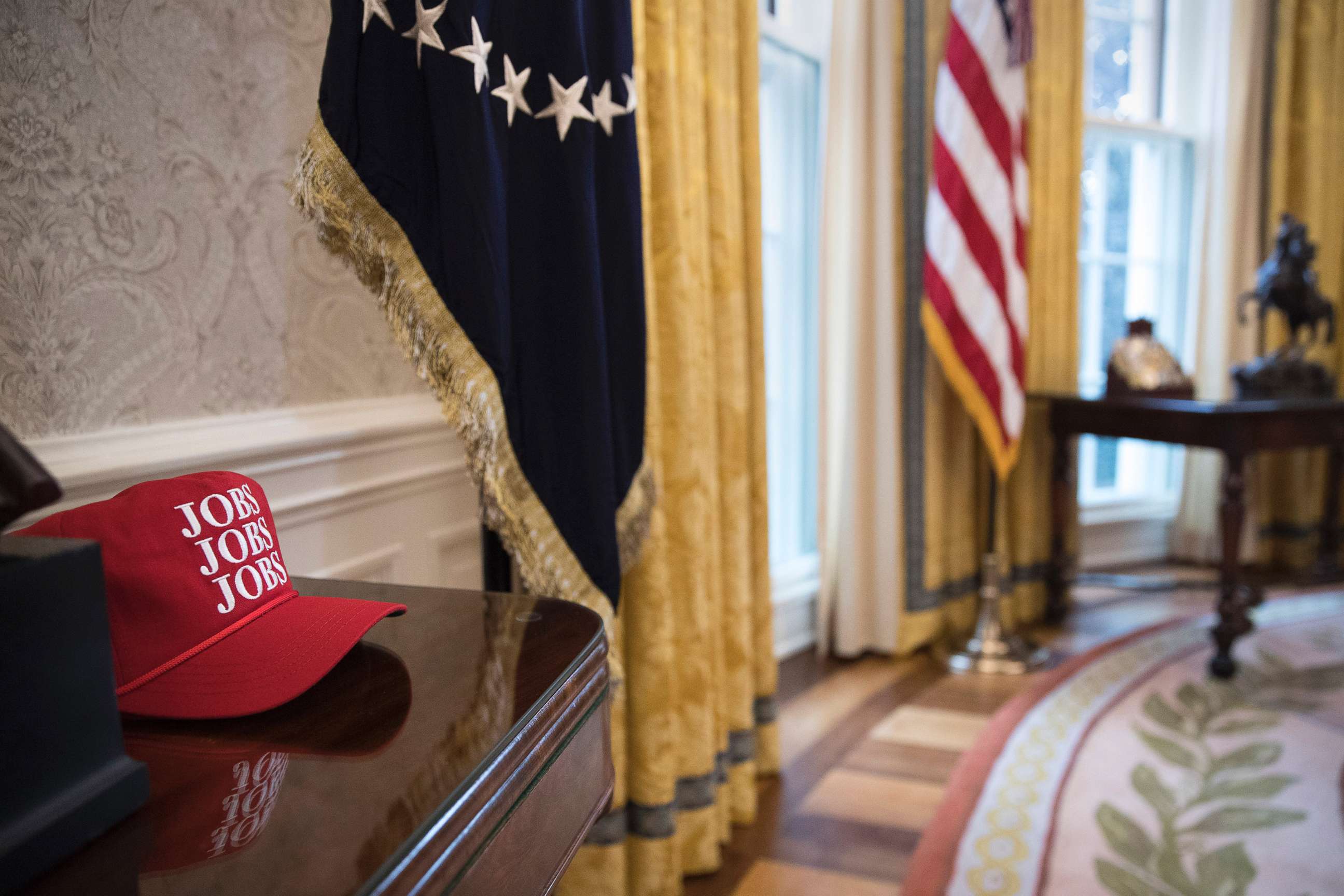
JOB ONE
Trump’s appeal in 2016 was built on vows to revitalize the economy, to bring back jobs and boost incomes while cutting back on international trade deals that fail to put – in his words – “America First.”
The economy under Trump is humming, with the stock market reaching fresh records and a brand new tax cut spurring business investments. But the rising tide is lifting boats unevenly, and it’s far from clear that Trump and his backers will get political credit for the flashy numbers used as broad-brush economic indicators.
Trump’s sweeping promises to revive American manufacturing and bring back shrinking industries like coal will be put to the test in Rust Belt states, where those promises made an electoral difference. He has infused his party with an anti-globalist ethos that has him remaking trade deals and favoring industries that thrived in a previous era — with mixed success.
The tax cut — Trump’s signature legislative achievement — will be a central argument for Republicans to maintain they deserve to hold on to power. Many of the same suburbs where voters are repulsed by the president’s personal behavior might like their swelling bank accounts.
Yet the tax cut’s main consequences won’t be felt for individuals until next tax filing season. Millions of Americans -– many of whom live in blue states where Democrats hope to rebound into the majority -- are girding to be hit with net tax hikes.
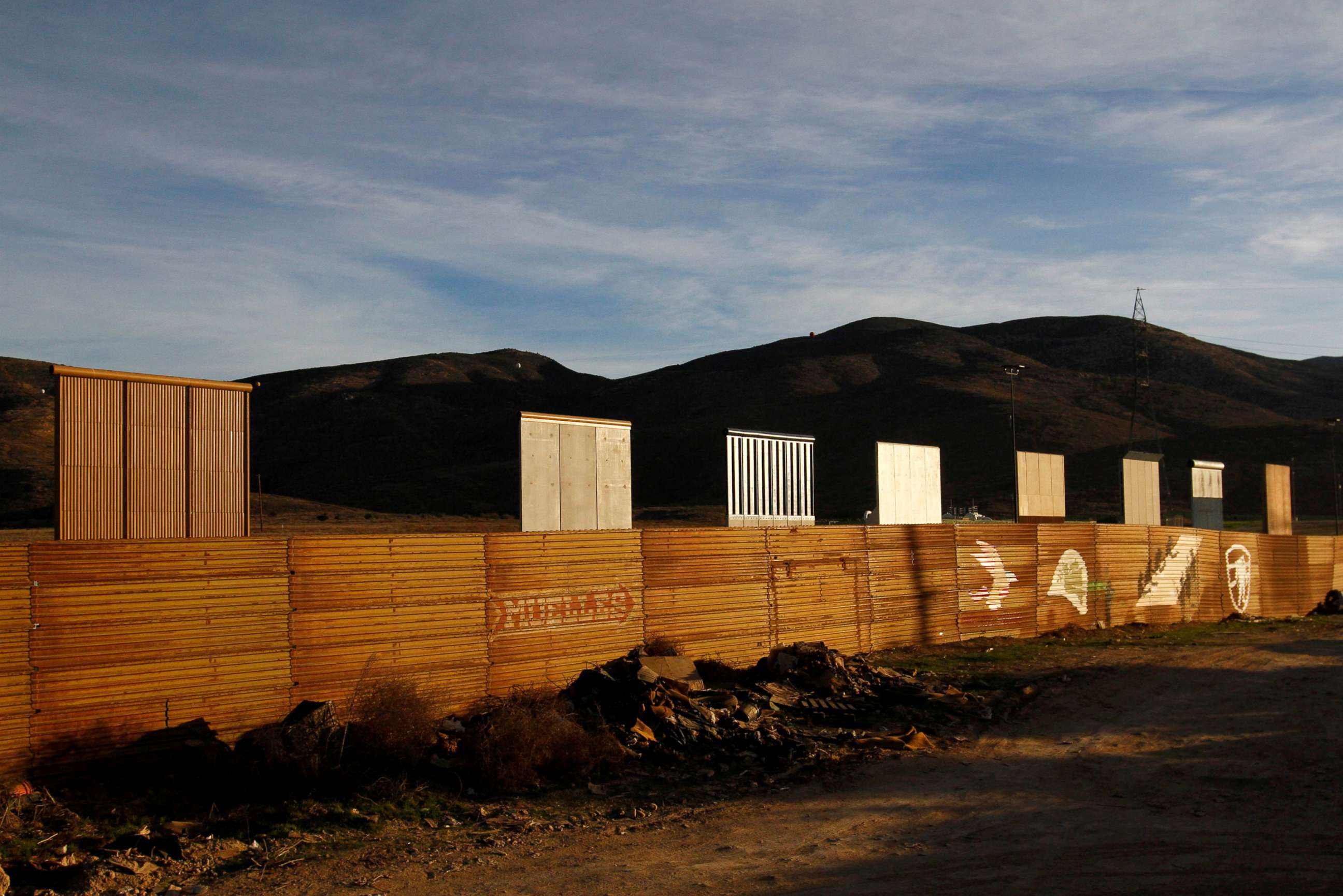
A WALL IN THE ELECTION
Trump’s border wall has become the line in the sand for candidates to come down on either side of. Some of them will repeat the president’s "build the wall" mantra. Others will rally their supporters against it.
Either way, border security and the fate of the Dreamers, the undocumented immigrants brought to the U.S. as children, will be a strong subject of rhetoric in 2018.
This issue could be one to hurt Republicans more than any other, particularly if it’s not resolved quickly. The final Deferred Action for Childhood Arrivals deadline is March 5, one day before the first primary of 2018 — March 6 in Texas, a state with a strong interest in immigration issues.
If Republicans are arguing among themselves on how to deal with border security and Dreamers, expect the reverberations to flow into primary elections.
And the results could show how much the country supports the president’s billion-dollar idea of a border wall.
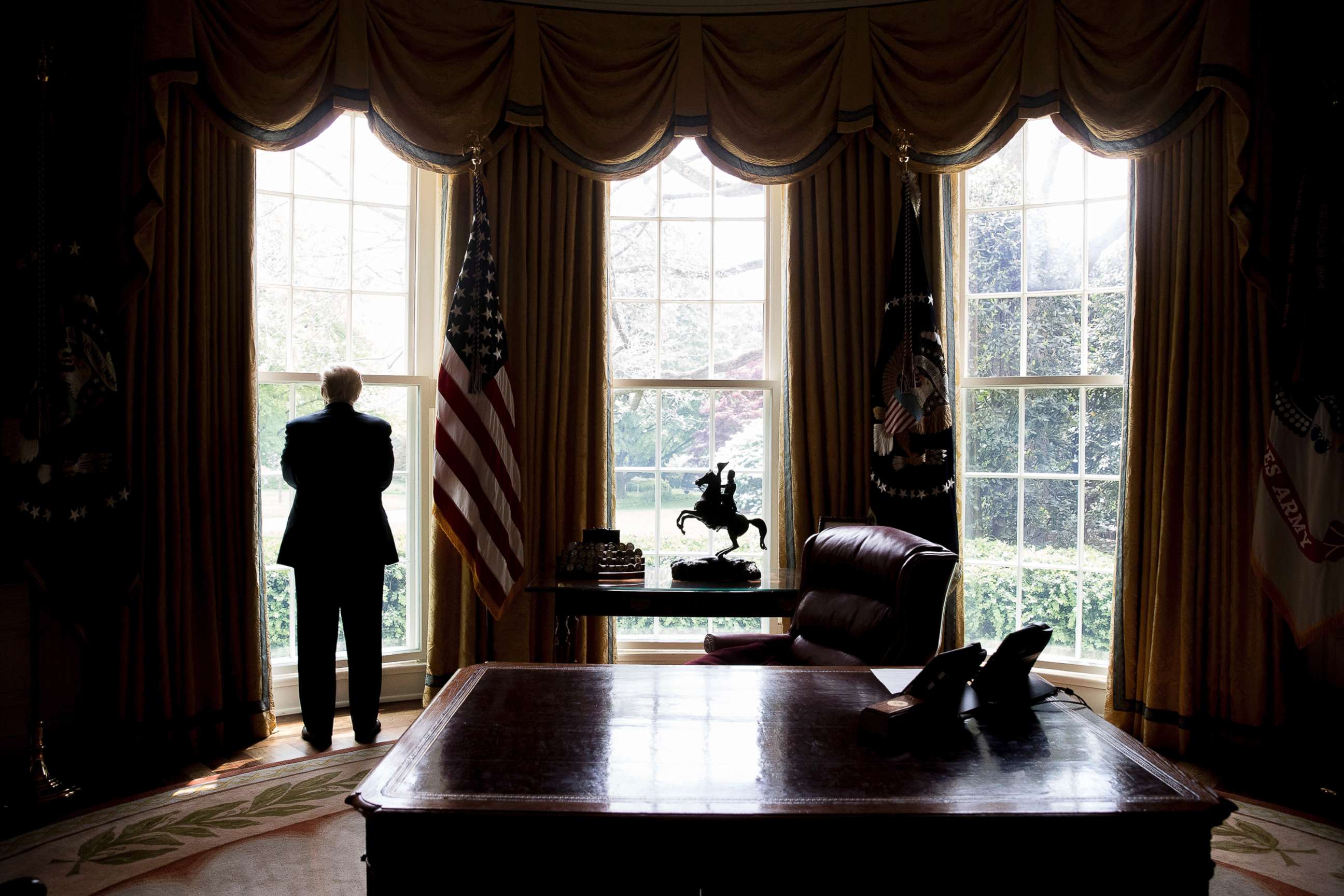
TRUMP’S WAKE
The stage was set for the next round in the long-running battle between GOP establishment and the conservative grassroots, with former Trump adviser Steve Bannon leading a charge to take out incumbents.
Now, Bannon is largely gone from the national landscape, at least for now. But the forces he sought to channel remain and are likely to play out in Republican primaries from Arizona and Nevada to Indiana and Mississippi.
While Trump’s approval rating nationally is mired near historic lows, he remains a popular presence in vast swaths of the country, particularly among core Republicans. The dominant theme in several races is who is most fit to wear a “Make America Great Again” hat, with multiple candidates vying to out-Trump the president himself.
Nothing motivates a president like the prospect of losing a majority in Congress, and Trump hates losing more than most. Burned by his party's loss in Alabama, he’s promising to stay out of intra-party fights but he also wants to play an aggressive role on the trail – risking backlash, but also potentially motivating his loyal base.
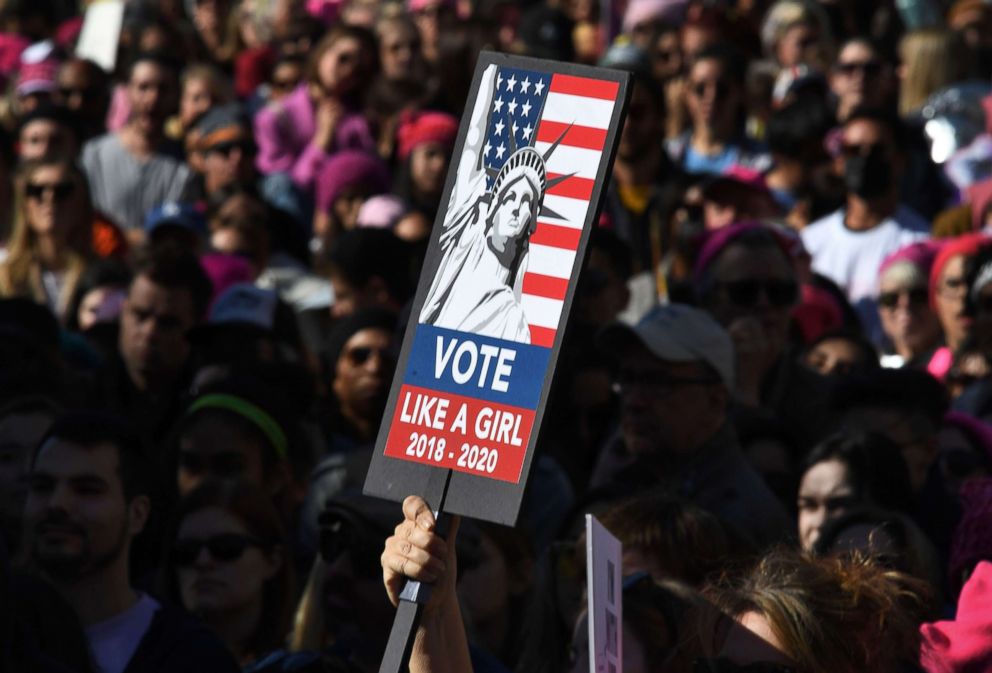
WOMEN ON THE MARCH
First they marched; then they got to work.
From coast-to-coast, in blue states and red states, at all levels, an eye-popping number of women have decided to run for elected office this year. Most are doing so for the first time in their careers and they are backed by powerful sisterhoods urging them on.
EMILY’s List, a national organization that supports female Democratic candidates, says that 26,000 women contacted them about running for office in the year after Trump was elected. Many of these women talk openly about being motivated by Hillary Clinton’s loss, Trump’s behavior toward women, and Republicans’ policies regarding health care and reproductive rights.
If the outcomes in local elections in 2017 are any indication, these Democratic women may be a force to be reckoned with in November. Of the 15 seats Democrats flipped in the Virginia statehouse, 11 were won by women.
“Women are committed to leveraging a power that we already have,” Ilyse Hogue, president of NARAL Pro-Choice America told ABC News. “We have tried to negotiate our rights, freedoms, economic security and the things that affect our families through a majority male government and it hasn’t worked.”
“And so we are going to elect our own.”
Republicans have a new generation of women running too. Taking both parties into account, an estimated 80 women are either running for governor or said to be thinking about it. It’s a remarkable number considering that only 39 women have ever served as governor in the entire history of the union.
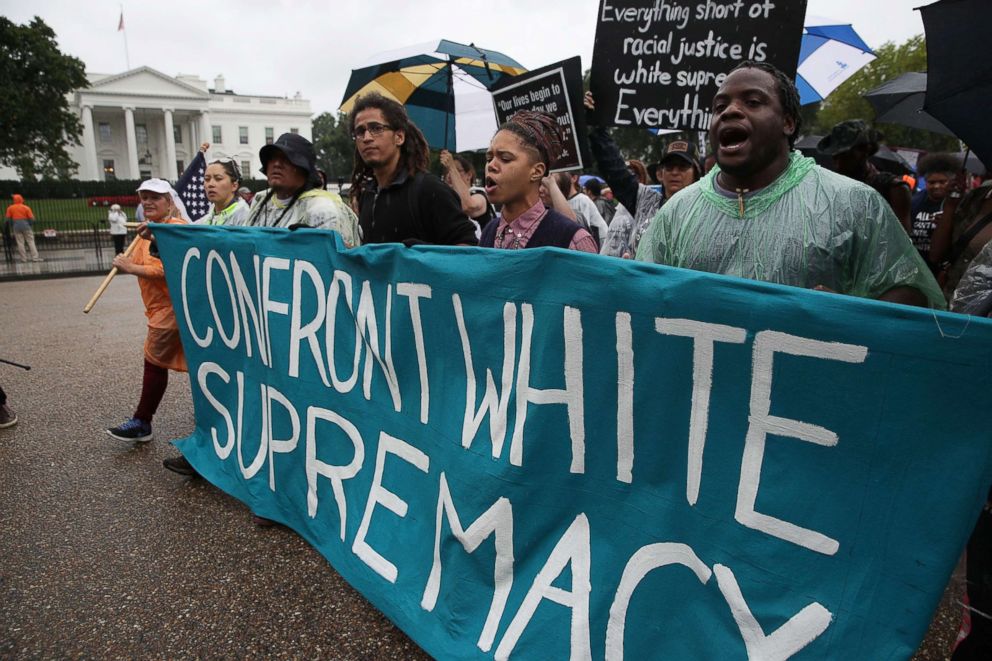
RACE RELATIONS
When Trump said there were “very fine people” on both sides of the deadly protest in Charlottesville, Va., over the summer, he confirmed a fear held by large swaths of the country that he may be sympathetic to or unwilling to stand up to white nationalists.
He did not help his case just weeks ago when he implied he’d prefer immigrants from Norway over “s—-hole” African countries.
From his statements about confederate statues and NFL players who take a knee, to proposals that seem aimed at his campaign vow of a Muslim ban, to lagging efforts to rebuild Puerto Rico, the president’s opponents have often seen him to be dividing Americans based on racial or religious lines. And that will have a ripple effect in races of all shapes and sizes this year.
Minority communities that had lackluster interest in Clinton’s campaign appear fired up and organized in the era of Trump. In the Alabama Senate special election, African-American votes powered the Democratic candidate to a surprise victory.
The extent to which candidates on both sides of the aisle talk about these issues will vary widely. Plenty of Democrats will want to tie their opponents to the president’s record, but others may seek to skirt these topics entirely.
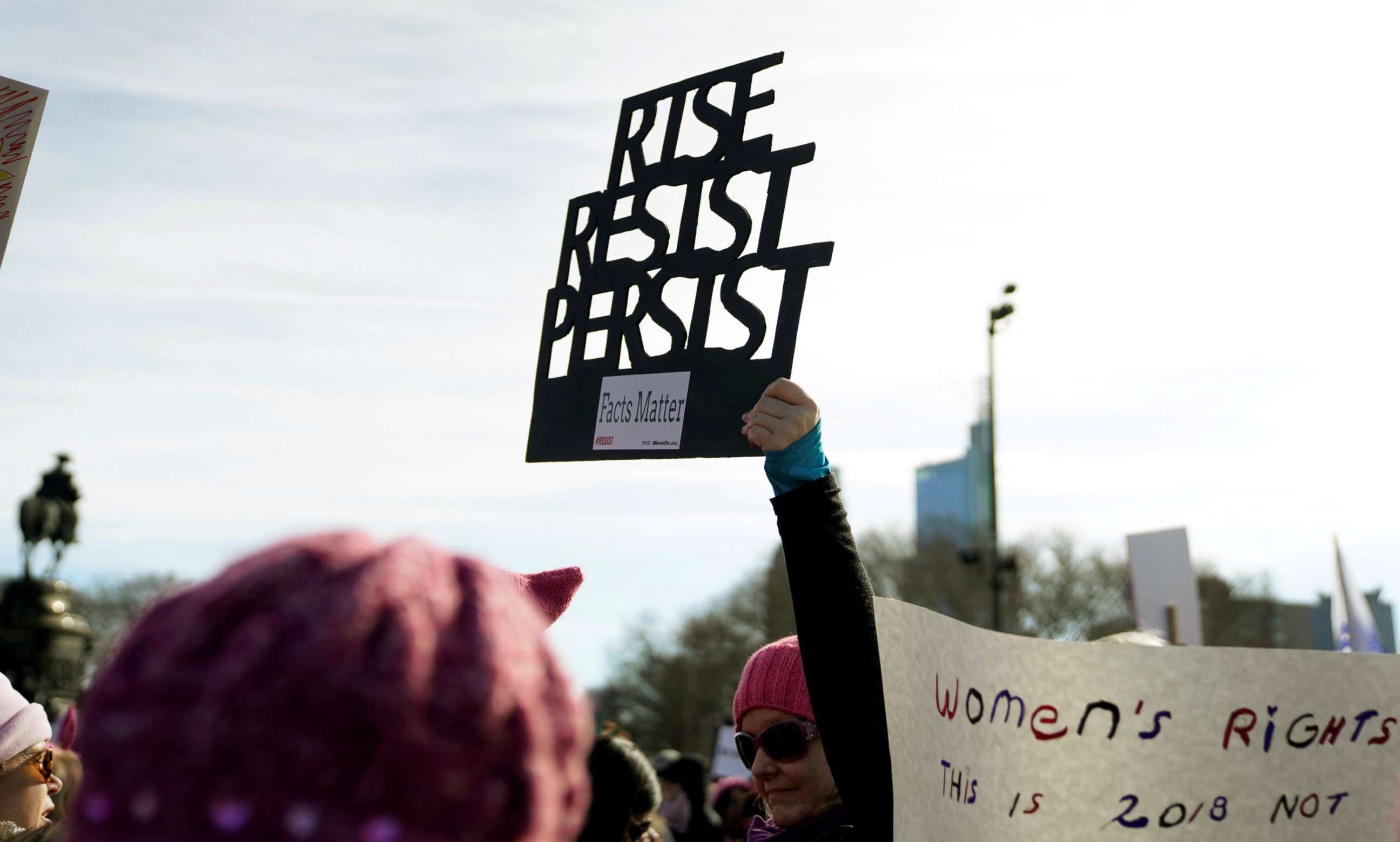
THE BLUE WAVE
Buzz is growing about a blue wave coming. With the president’s approval ratings so low and energy on the left so high, Democratic strategists know this is a unique moment for their party to win back significant ground after an embarrassing presidential loss in 2016.
Those working for Democratic congressional campaigns often sound bullish and are aggressively pushing into traditionally red territory looking for more people turned off by Trump and motivated to action in the last year.
But the men and women who identify with the so-called “resistance” and are pushing back, opposing Trump’s policies and language both federally and in local government at the grassroots level, do not always see themselves as Democrats -– or at least not loyal, excited ones.
There continues to be deep frustration in progressive circles that elected Democratic officials have not learned key lessons and are not changing the party enough. The last few months have featured animated debates in the party on everything from the Democratic National Committee’s budget process to whether it’s worth government shutdowns in the fight to protect Dreamers.
Expect some rough-and-tumble Democratic primaries as activists try to harness resistance vigor into reliable votes. And Democrats run the age-old risk of pulling candidates too far left for their districts.
IT ALL COMES DOWN TO…
Finally, there’s the question of how the two years after the election will play out.
Will it be a shellacking? Because if Democrats take back just one chamber of Congress, expect investigations, gridlock and talk of impeachment, to dominate 2019. Democrats are expected to use the power of the congressional subpoena to bring administration officials before them for grillings.
If Republicans keep their hold on both chambers, Trump will view electoral successes as endorsements of his vision, arguing it will prove he had the coattails to get Republicans elected — something President Barack Obama couldn’t really do for Democrats when he wasn’t on the ballot himself.
As for Democrats, the failure to win back a chamber will force them have to regroup and re-evaluate how they move forward before 2020.
In the end, 2018 may be most remembered for what it portends for the next race for the White House.
If Republicans keep their grip on Capitol Hill, Trump enters the election with the wind at his back.
If not, an energized Democratic base could be poised to hand him his walking papers.
18 For 18’ is ABC News’ powerhouse political coverage of the 2018 midterm elections. Coverage kicks off Sunday on “This Week with George Stephanopoulos,” featuring a report on the 2018 midterms and the special House of Representatives election taking place next month in Pennsylvania. Coverage continues on “Nightline” on Monday. To stay up to date, visit ABCNews.com and the ABC News app, and follow our midterm elections alerts.
